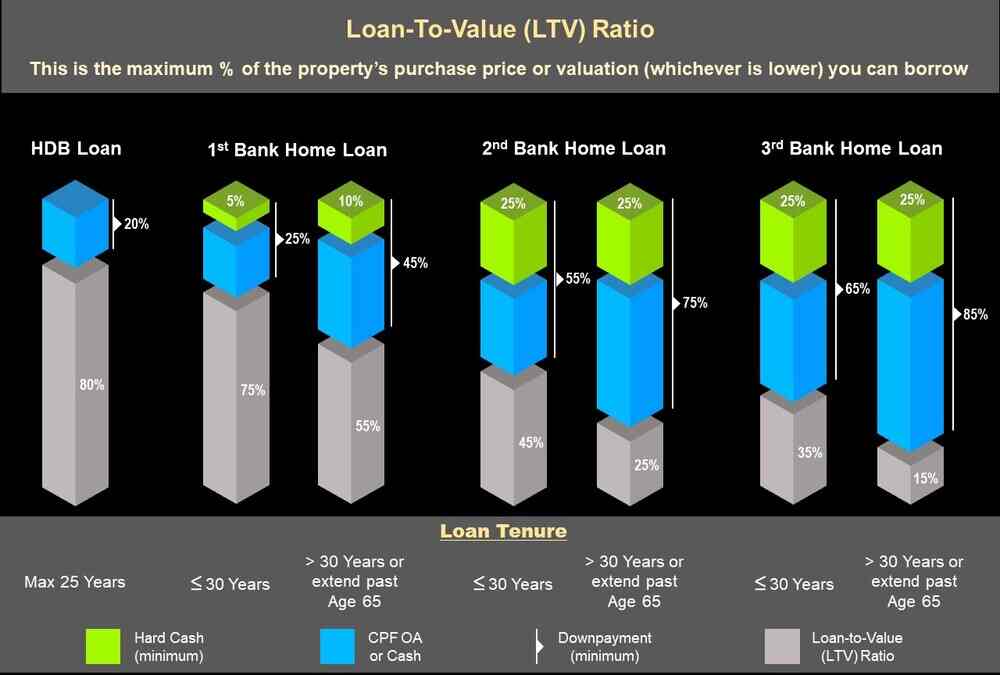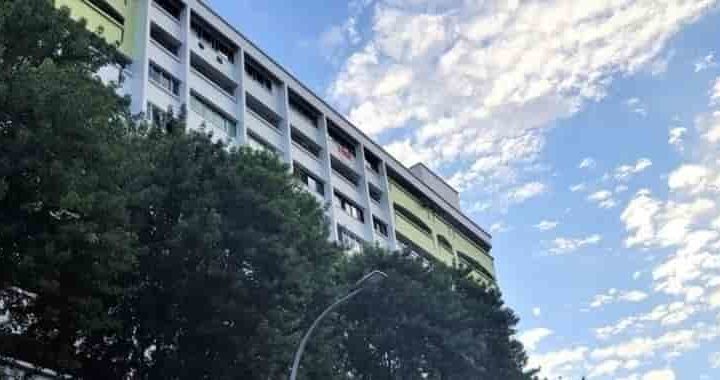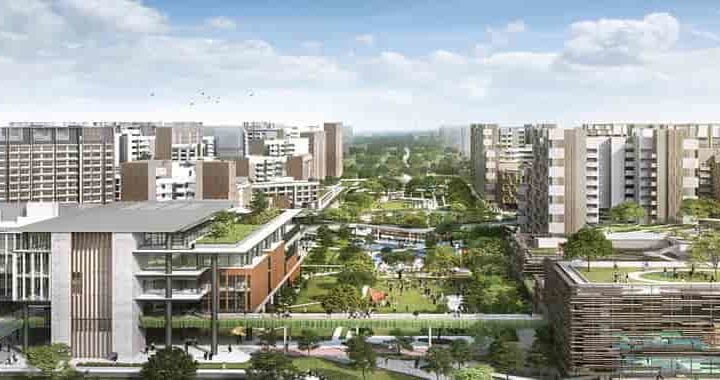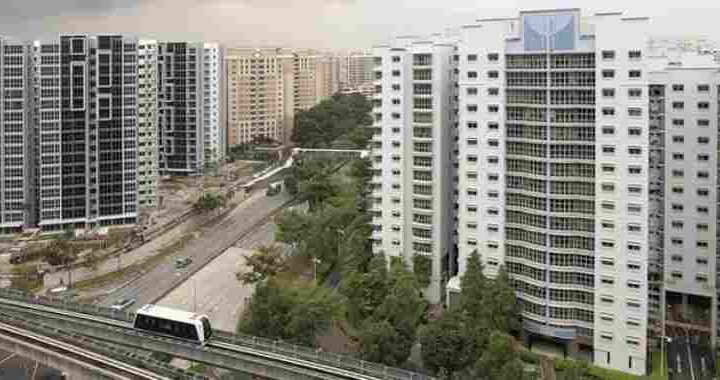How to Buy a New Executive Condo (EC): Key Takeaways
What are Executive Condominiums: A hybrid housing type that combines public and private housing elements, with ownership restrictions for the first 10 years before becoming fully privatised.
Eligibility for EC Purchase: It is subjected to strict criteria, including citizenship requirements, income ceiling, and property ownership restrictions.
EC Buying Process: It involves research, financial preparation, e-application, balloting, and unit selection. Buyers should be prepared for each stage for a smooth application.
Financial Considerations: EC. Buyers need to prepare for the down payment (20% of purchase price), understand available housing grants, secure bank loans, and budget for additional costs such as legal fees and stamp duty.
Engaging a Property Agent: A property agent can provide market insights, administrative assistance, and personalised service at no cost to the buyer, with commissions paid by the developer.
- Step 1: Understanding Executive Condominiums
- Step 2: Eligibility Checks to Buy an Executive Condo
- Step 3: Evaluate Finances and Set Aside Funds for Down Payment
- Step 4: Research and Selection of ECs
- Step 5: Submit an Application to Book an EC Unit
- Step 6: Shortlist EC Units
- Step 7: Booking Day of Executive Condo
- Step 8: Post-EC Booking Requirements
- Step 9: Financing Your Executive Condo
- Step 10: Collect the keys and Move Into Your EC
- Conclusion
This EC guide will provide detailed information on how to buy a new executive condo. Whether you are a first-time buyer or an HDB homeowner looking to upgrade, it is important to be familiar with each stage of the application process.
Buying an executive condominium (EC) in Singapore is a significant financial decision that involves a structured process. These include eligibility checks, adherence to strict ownership criteria, and securing financing.
Step 1: Understanding Executive Condominiums
Executive Condominiums (ECs) is a hybrid housing type in Singapore, blending public and private housing elements. They are built and sold by private developers but are subjected to certain ownership regulations and sales restrictions imposed by the Housing Development Board (HDB) for the first ten years. After this period, ECs will become fully privatised, just like private condos.
Executive condos can be excellent investment properties as the government allocates land for ECs at a discount through its Government Land Sales (GLS) programme. This makes the overall development cost of ECs lower than private condos. Moreover, eligible buyers can receive up to $16,000 housing grant, depending on their gross monthly household income.
In addition, ownership restrictions are less stringent than HDB BTO flats launched from October 2024 which will be sold under new classifications.
Step 2: Eligibility Checks to Buy an Executive Condo
Before considering buying a new executive condo, it's crucial to verify your eligibility based on the following criteria:
- Citizenship: At least one applicant must be a Singapore Citizen, and the other must be a Singapore Citizen or Permanent Resident. All singles must be Singapore Citizens if applying under the Joint Singles Scheme
- Age: Applicants must be at least 21 years old. For those applying under the Joint Singles Scheme, applicants must be at least 35 years old.
- Family Nucleus: You must form a family nucleus under one of the eligibility schemes: Public Scheme, Fiancé/Fiancée Scheme, Orphans Scheme, or Joint Singles Scheme.
- Income Ceiling: Your gross monthly household income must not exceed $16,000.
- Property Ownership: You should not own any private property locally or overseas, and you must not have disposed of any within the last 30 months. Additionally, you have not bought an HDB resale flat with CPF Housing Grant or a new HDB/ DBSS flat or EC more than once.
Step 3: Evaluate Finances and Set Aside Funds for Down Payment
Once eligibility is confirmed, the next step is to prepare financially for your EC application. This includes:
Assessing Financial Health: Evaluate your financial status, ensuring you have sufficient savings for the down payment, which is 20% of the purchase price (5% in cash and 15% in cash/CPF). However, due to the Loan-to-value (LTV) limit where banks can only loan up to 75% of the property value, you must cafefully assess your affodability.
The actual loan amount will also be subjected to regulations like the Total Debt Servicing Ratio (TDSR) and Mortgage Servicing Ratio (MSR). Hence, the loan amount you are granted to buy an EC may be lower than expected.

Loan-to-Value (LTV) Chart
EC Housing Grant: Assess how much housing grant you are eligible for. The maximum amount you can receive is $30,000 if your gross monthly household income is $10,000 or lower. The higher your monthly household income, the less you will get, as indicated in the table below:
| Average Monthly Gross Income of Applicants/Occupants | FAMILY GRANT | Half Housing Grant First-Timer (FT) SC & Second-Timer (ST) Who Has Previously Taken 1 Housing Subsidy | |
| SC Household | SC/SPR Household | ||
| $10,000 or lower | $30,000 | $20,000 | $15,000 |
| $10,001 to $11,000 | $20,000 | $10,000 | $10,000 |
| $11,001 to $12,000 | $10,000 | Nil | $5,000 |
| $12,001 to $16,000 | Nil | Nil | Nil |
| *SC - Singapore Citizen *SPR - Singapore Permanent Resident | |||
Applying for a Mortgage: Understand the loan options available. EC buyers can only opt for bank loans as HDB loans are not applicable for buying executive condo. Getting an In-Principle-Approval (IPA) from a bank is advisable to assess your affordability. Your income, age, loan tenure or any outstanding loans will be taken into consideration to determine your borrowing limit.
Budgeting for Additional Costs: To buy a new executive condo, you must set aside additional costs such as legal fees (about $2,500-$3,000), stamp duty (approximately 3%-4% of the purchase price), and administrative fees.
Resale Levy: If you have previously purchased a flat from HDB, EC from a developer, or received a CPF Housing Grant, a resale levy of up to $55,000 will be imposed. The amount of levy will be based on the type of housing you are staying in, as indicated below:
| First Subsidised Housing Type | Resale Levy Amount | |
| First Subsidised Housing Type | Recipient of CPF Housing Grant (Singles) | |
| 2-room/ 2-room Flexi flat | $15,000 | $7,500 |
| 3-room flat | $30,000 | $15,000 |
| 4-room flat | $40,000 | $20,000 |
| 5-room flat | $45,000 | $22,500 |
| Executive flat | $50,000 | $25,000 |
| Executive Condominium | $55,000 | Not applicable |
Step 4: Research and Selection of ECs
Research EC Projects: Evaluate extensively executive condos currently available or are in the pipeline. Consider factors such as location, developer reputation, project facilities, proximity to a MRT station or your work place, and future developments in the vicinity for their investment prospects.
You may refer to online resources and property portals to gather information. Alternatively, consult a property agent for the necessary information
Visiting Show Flats: Developers often provide show flats for viewing for prospective buyers. By visiting them, you can better appreciate the project. It is advisable to contact their marketing agent to attend the launch preview where you will receive detailed information about the development, including the various floor and site plans. You will also be guided on the process to buy a new executive condo.
Reviewing Floor Plans: Study the available floor plans to choose a unit that best suits your needs and affordability, as well as practicality of unit layouts. This may also affect the value of your EC when you decide to sell it in the future.
Step 5: Submit an Application to Book an EC Unit
After shortlisting your preferred EC, the next step is to submit your E-application to book a unit.
E-Application: Submit an electronic application during the developer’s launch period. The E-application process will usually last about 2-3 weeks and the results should be out within a week or two after it closes. [Note: There is no penalty if you withdraw after submitting your E-application or choose to back out from balloting after the HDB approves your application].
Your property agent can assist you with filing the necessary forms and submitting the relevant documents.
Information Required for E-Application:
- Name.
- Citizenship.
- NRIC Number.
- Gender.
- Marital Status.
- Mobile Number.
- Email.
- Employment Status.
- Occupation.
- Gross Monthly Income.
Documents to be Submitted:
- Proof of Identity / Citizenship (NRIC).
- Proof of Relationship / Marital Status (Marriage Certificate).
- Proof of Income (three months payslips for employed, or two years of Notice of Assessment for self-employed).
- CPF Housing Grant Application Form - to be submitted to the developer within one week of booking or risk not being able to utilise it for your down payment.
Balloting and Price List Release: A balloting process will be conducted to allocate units to applicants. You should receive the result of your E-application within three weeks. If successful, you will be given a ballot number. At the same time, you will receive a copy of the price list before the booking date.
Step 6: Shortlist EC Units
Study the pricing for different unit types, their levels and facings, and what stacks/blocks they are located at.
Developers typically price different units differently and those with good layouts and facing will be priced at a premium to ensure the less desirable units can be cleared. Also, units at higher floors will be priced more. A common estimate for the price increment for each level is about $1,000 to $5,000, though this can vary widely for different projects.
It is advisable to tap into your property agent’s knowledge and marketing experience on the selection of units. As a guide, prioritise units with efficient layouts like enclosed kitchens, utility rooms, and functional balconies. Avoid units facing disamenities like main roads, bin centres, or walkways that compromise privacy.
Analyse the developer’s pricing strategy and identify well-priced units with attractive attributes. Create a comprehensive shortlist with ample backup options in case your preferred units are snapped up by buyers ahead of your queue number.
Step 7: Booking Day of Executive Condo
The booking of your executive condo is usually done at the show flat. You will be given a designated time, based on your ballot number. However, arriving at least 30 minutes early is advisable to ensure you will not miss your turn.
Your property agent will be with you to ensure a seamless booking process.
When it is time to book, you will be ushered into the area to select your unit. There will be a live update of the units taken and those still available. When it is time to choose your unit and you are undecided (eg, your shortlisted units have been taken up), you will be ushered into the “Thinking Box” or a “decision room”. This is a private space to contemplate your decision while not holding up the queue.
If you are overseas, you can assign a proxy to buy a book a unit on your behalf. However, you must complete and submit an authorisation form to the developer.
Securing Your EC Unit
Once you have selected your unit, you will be required to hand over a cheque amounting to 5% of the purchase price of your executive condo unit. This booking fee will form part of your initial 20% down payment and secure your right to purchase the unit for a stipulated period (typically 21 days).
Payment can be by Cashier’s Order, cheque or telegraphic transfer/ Fast and Secure Transfers/ MAS Electronic Payment System.
Signing of Property Detail Information (PDI) Form
In return for the 5% booking fee, you will be given the Property Detail Information (PDI) form. The PDI contains comprehensive details about your property purchase. These include information about the developer, floor plans, site plans, fixtures and appliances, and rules and regulations.
By signing the PDI form, you acknowledge that you understand the Terms & Conditions of the EC unit you are buying.
Receiving the Option-to-Purchase (OTP)
Successful applicants will be issued an OTP, which is a legal agreement granting the right to purchase the property. A booking fee (typically 5% of the purchase price) is required at this stage.
You will have 21 days to exercise the option by signing the Sales & Purchase Agreement and returning it to the developer. You will then need to pay the remaining downpayment of 15% plus Buyer’s Stamp Duty, using HDB Housing Grants, CPF monies, or cash.
Note: If you decide to withdraw from the purchase at this stage, the developer will forfeit 25% of the 5% booking fee.
Step 8: Post-EC Booking Requirements
After booking your executive condo unit, two important matters must be settled.
- Secure financing: Secure a letter of offer from a bank to finance the remaining 80% of your EC purchase price. To secure a bank loan, you must submit the necessary documents, including the option-to-purchase. If you are unsure which bank to approach, your property agent can assist by providing recommendations of loan packages for your consideratipn and comparison.
- Engage a conveyancing lawyer: A conveyancing lawyer handles the legal aspects of property transfers. They prepare and review documents, manage financial matters, provide legal advice, communicate with involved parties, ensure compliance with laws, protect client interests, and finalise the transfer. Their expertise is crucial for smooth, legally sound property transactions. If you do not have a conveyaning lawyer in mind, your property agent can recommend.
Step 9: Financing Your Executive Condo
Decide on your payment scheme: There are two ways to finance your EC purchase.
Normal Progressive Payment Scheme (NPS): Your home loan will be disbursed according to the construction stages of your executive condo. This means that your home loan repayments will commence much earlier.
Deferred Payment Scheme (DPS): After the down payment of 20% to book your executive condo (5% in cash and the remaining 15% using either cash or CPF), the balance of 80% financed through a bank loan will only take effect when your executive condo receives its TOP. But, you have to be aware that the purchase price of your executive condo under DPS will be 2-3% higher, accounting for the interests the developer forgo for receiving the bulk of the payments later. However, DPS can benefit buyers who are servicing existing housing loans.
The schedule of payments for both schemes is shown below:
| Stages of Payments | Timeline | Normal Progressive Payment Scheme (NPS) | Deferred Payment Scheme (DPS) |
| Booking: Upon the grant of the Option to Purchase | Option Date | 5% (Cash) | 5% (Cash) |
| S&P: Upon the signing of the Sales & Purchase Agreement | 9 Weeks from Option Date | 15% (CPF or Cash) | 15% (CPF or Cash) |
| Foundation: Completion of Foundation Work | 6-9 Months | 10% (5% CPF or Cash and 5% Bank Loan) | - |
| Framework: Completion of Reinforced Concrete Framework | 6-9 Months | 10% (Bank Loan) | - |
| Wall: Completion of Brik Walls | 3-6 Months | 5% (Bank Loan) | - |
| Ceiling: Completion of Roofing/Ceiling | 3-6 Months | 5% (Bank Loan) | - |
| Windows: Completion of Electrical Wiring, Internal Plastering, Plumbing and Window Frames | 3-6 Months | 5% (Bank Loan) | - |
| Car Park: Completion of Car Park, Roads and Drains serving the housing development | 3-6 Months | 5% (Bank Loan) | - |
| TOP: Temporary Occupation Period | TOP | 25% (Bank Loan) | 65% (Bank Loan) |
| CSC: Certificate of Legal Completion | CSC | 15% (Bank Loan) | 15% (Bank Loan) |
Step 10: Collect the keys and Move Into Your EC
Once the Temporary Occupation Permit (TOP) is issued, you can collect your keys and move into your new EC.
Defects Check: Conduct a thorough inspection for any defects. The defect liability period is 12 months, starting from the date of taking possession of your EC unit. Report any construction defects to the developer as soon as possible and have them rectified free of charge.
Do not start renovations or move in until you are satisfied that all defects have been spotted and rectified. This is to prevent potential disputes regarding who is responsible for the defects.
Renovation: Plan and execute any renovation work needed. Ensure compliance with any guidelines set by the developer or management. For example, if you intend to install a zip blind for your balcony, it is usually standardised for the whole EC development.
This is to maintain a uniform external appearance, ensuring that the overall look of the building is cohesive and aesthetically pleasing, which can help maintain property values.
Conclusion
The process of buying a new executive condo need not be daunting, even for first-time buyers. Engaging a property agent can smoothen the process and offer numerous benefits. These include the following:
- No Commission: No commission is incurred by you when buying a new executive condo. As the property agent will receive the commission from the developer, why not take advantage of this free service?
- Market Expertise: A real estate agent has extensive knowledge of current trends, pricing strategies, and property regulations. In addition, he can assist you in shortlisting the most ideal units.
- Network Access: A property agent has connections with legal professionals and financial institutions, providing you with choices and saving you time from sourcing such services yourself.
- Administrative Assistance: A property agent can handle intricate paperwork and ensure correct documentation, reducing risks of errors or delays.
- Financial Planning: A good agent can help assess your financial position for EC ownership, including eligibility criteria, CPF usage, housng grants, and loan options. They can work with you to determine a realistic budget and ensure you meet all financial requirements.
- Personalised Service: Property agents can tailor their search to meet your specific needs and advise on upcoming new EC launches, saving you time and effort.
If you are looking to buy a new executive condo, check out Lumina Grand and Altura. Alternatively, you may wish to wait for the next EC project at Tengah - Novo Place. It is expected to be launched around October or slightly later.
Whatsapp me for the latest information on executive condo or if you require any assistance.




